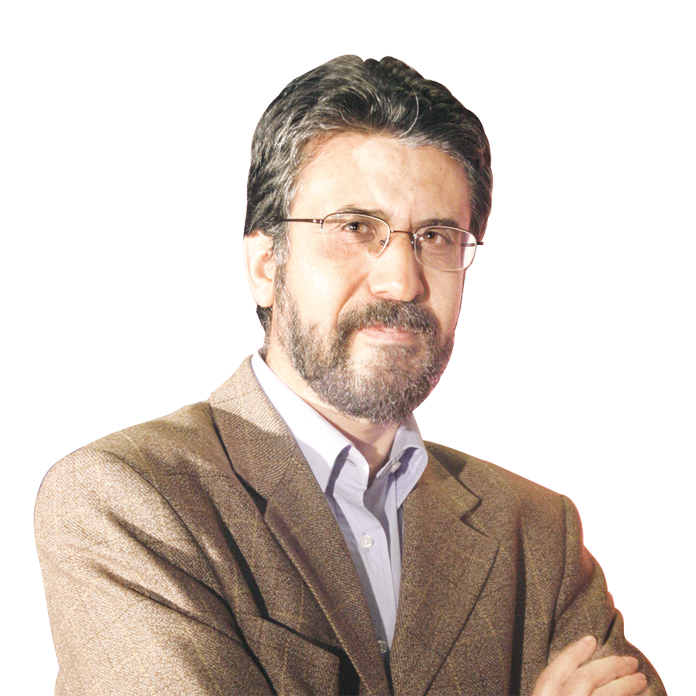Turkey, due to its regional role, history and geostrategic location along with its importance in many areas that can be added to these, is not a country that can be left aside. We are generally very happy to list how important we are. Indeed, looking at the region, it is not possible to show more than a couple countries that have similar qualities.
Turkey's all-round importance is probably one of the country's biggest dilemmas. Ultimately, the state holds the legacy of the political and cultural presence of no more than five empires that emerged in the last millennium on the Eurasian axis. The more it wants to get away from this legacy, the more it feels the burden of this history. Or, whenever there is a desire to propound and revive intention to claim the legacy, realpolitik and economic factors prevent it. The problem is how much the existing platform represents the historical depth of which, in reality, we are the residue. Rhetoric does not always rely on loyalty and relations to truth, as deceptive discourse can disappoint.
A typical and painful example of this is taking place in relations with the U.S. and EU. Turkey wants to enter a relationship with Europe, become integrated and become a member of the EU by disregarding its historical depth. But the EU sees Turkey as the inheritor of a civilization whose heritage it disclaims. But historical memory is activated, and by virtue of historical experience, it considers it too big to accept, yet too important to exclude. Therefore, is deems it appropriate to keep it waiting at the door.
Another paradoxical relationship is revealed in the problems experienced with regional countries. Turkey is not the only actor that has been building a wall in the Middle East for the past 70 years. National and clan units that owe a little of their existence to the colonialist appetites of imperial masters are remembering the historical heritage they disclaimed on behalf of Turkey. The deep rift between communities and the administration is bigger than Turkey.
The problem is that we act like the real owners of the Ottoman Empire, whose inheritor we could not be in terms of civilizational experience and whose heritage we disclaimed against its residue elements. The state's continuity is reduced to the skills of a mechanical organization in the form of the bureaucracy, – and memory – with its values rejected.
Despite all these contradictions, Turkey should destroy, or should have destroyed, the wall erected between it and the Middle East, at least in terms of its social and cultural map. It would have been impossible to avoid this effort from going down the drain in cases in which the seductive pleasure of this rhetoric is surrendered to. It was clear that a collapsed empire could not fix its frozen problems through historical romanticism or conjectural enthusiasm or optimism. If the world's strategic balances are going to be reset, one cannot expect to be involved while watching from the sidelines, as the parameters of restructuring and local reflections of the global siege have had to be read correctly. What is more important is that one must be aware of one's own strengths and weaknesses.
By displaying an enthusiastic but inadequate approach and creating a perception of being a threat beyond its own strength, it is destined to draw an undeserved level of reaction and intervention to itself.
Despite all the explanations or reasons coming from realpolitik, the shadow of history also falls over us at a time of disruption with the invasion of Iraq and the instability that began in Turkey with the Syrian civil war.
How could the current developments be made sense of with only a short interpretation of history? Two concrete incidents show Turkey and its potential as an example of this perception of a threat. It has been revealed that Daesh, which emerged in Iraq and Syria, is actually considered useful as a tool of intervention tool in the new global strategy. While it forms the justification for strategic moves in both the West and Middle East, there is a desire to eliminate Islam.
Yet, specific to Turkey, it is obvious that the U.S. in particular is playing the Kurdish card despite the region's countries' sensitivities. It shows that a new setup, a non-Islamic, secular, ideological Kurdish nationalism is being released on the ground as a useful actor. This is a new formation disabled by weakness, which has become alienated in its region and is ideologically and strategically dependent on outside forces. A new entity that has become alienated from the region's most deep-seated Muslim community and pulled away from that Muslim identity is being set up.
Russia and the U.S., which have permitted Turkey's Operation Euphrates Shield activities in a certain area to form a corridor, for now have indicated that they accept Turkey's importance in the region. On a different note, this importance, which was negated in the Syrian civil war in the general sense, appears more concrete in Operation Euphrates Shield.
The U.S. supplying strategic weapons to the pro-Kurdish factions in Syria was a message to give a direct warning to Turkey. It is the U.S. system – not the new U.S. president, Donald Trump, or former President Barack Obama – showing its intention to give messages beyond a warning to Ankara, which overstepped its limit in the operation. Both the U.S. and Russia are giving this warning. For example, the diplomatic interpretation of the bombing of the Turkish Armed Forces (TAF) headquarters in a case of friendly fire needs consideration.
Al-Bab can either be isolated in the region from Turkey, or it can turn into a door that opens an area for it.




















